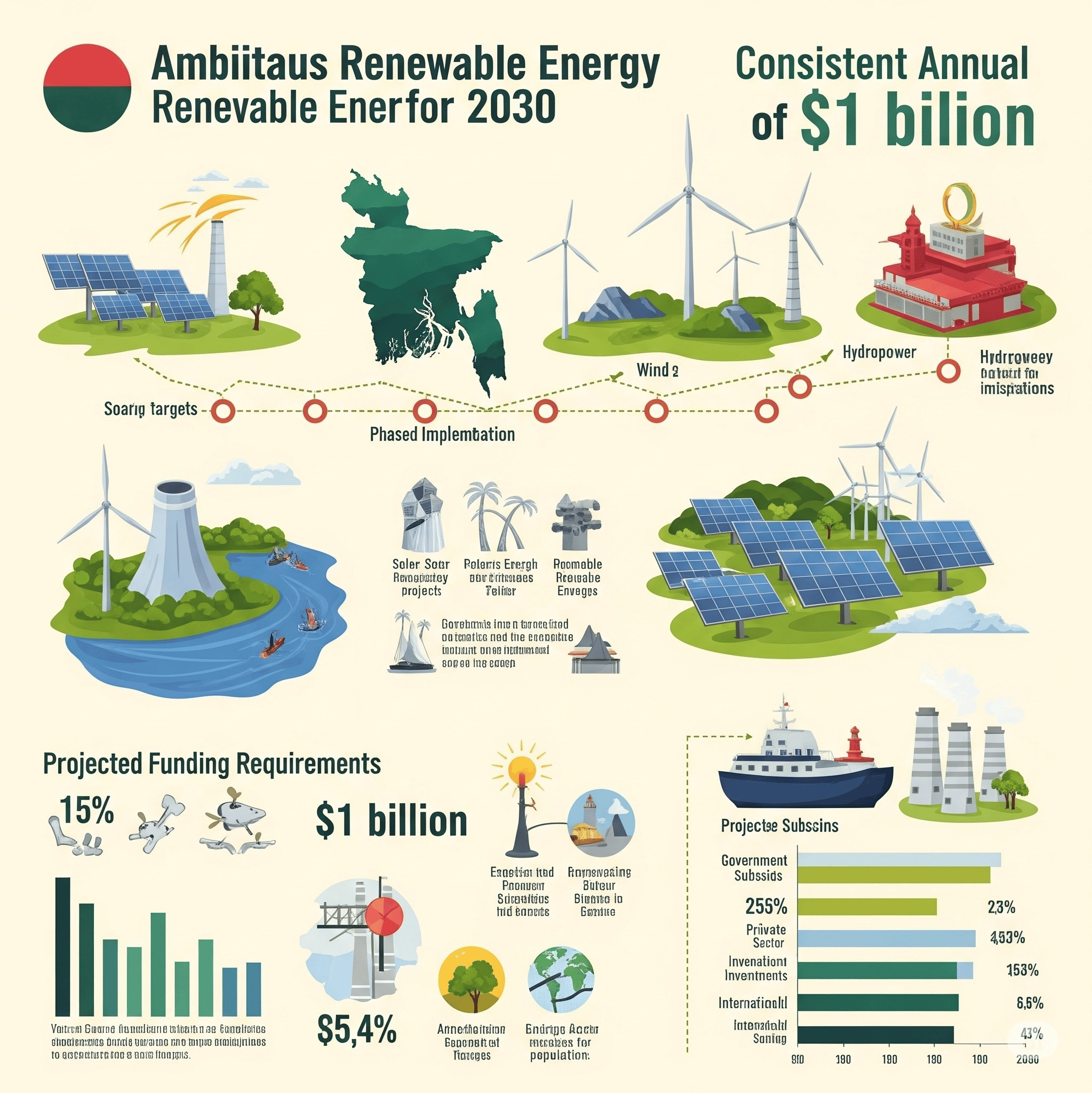Bangladesh will require approximately $933 million to $980 million annually until 2030 to meet its renewable energy target of generating 20% of electricity from clean sources, according to a recent study by the Institute for Energy Economics and Financial Analysis (IEEFA). The report also estimates that after 2030, investments will need to rise to $1.37–1.46 billion per year until 2040, as the country aims to raise the renewable share to 30% under its updated Renewable Energy Policy. Currently, Bangladesh generates only about 4–5% of its electricity from renewable sources, mainly solar. Bridging the gap to 20% will require not just financial commitment but also major policy reforms and infrastructure upgrades. The report emphasizes that public sector resources alone are insufficient to meet the investment gap. It is crucial to have involvement from both local and international private sectors. However, several barriers—such as regulatory unpredictability, off-taker risk, land acquisition challenges, and low sovereign credit ratings—are currently deterring investors. IEEFA notes that frequent changes in the bidding process and the cancellation of 31 planned utility-scale projects have only worsened investor confidence. To address these issues, IEEFA has recommended several key policy actions. First, the government must restore regulatory stability and enforce investor guarantees to encourage long-term capital inflow. Second, innovative public-private partnership (PPP) models should be adopted for land acquisition and project siting to avoid delays and disputes. In terms of affordability, the report suggests that removing import duties on key solar components such as inverters, panels, and specialized cables could significantly reduce capital expenditure for both large-scale and rooftop solar installations. Additionally, financial instruments like credit guarantees, blended finance, and currency risk mitigation mechanisms are needed to unlock foreign and domestic capital. IEEFA experts also welcomed the recent reduction of tariffs on solar inverters but stated that broader tax exemptions are necessary to scale up decentralized solar adoption. They highlighted that rooftop solar, in particular, can play a vital role in urban and peri-urban energy independence. As Bangladesh continues to face rising energy demand and fuel import pressure, expanding renewable energy is not only an environmental goal but also a strategic imperative. Achieving the $1 billion per year investment target will require a coordinated push involving government bodies, development partners, and the private sector. If implemented effectively, the transition could bring major economic benefits, including reduced fuel import bills, greater energy security, rural electrification, and thousands of green jobs—positioning Bangladesh as a regional leader in clean energy adoption.
Bangladesh to Need $1 Billion Annually to Meet 2030 Renewable Energy Goal
48
previous post


